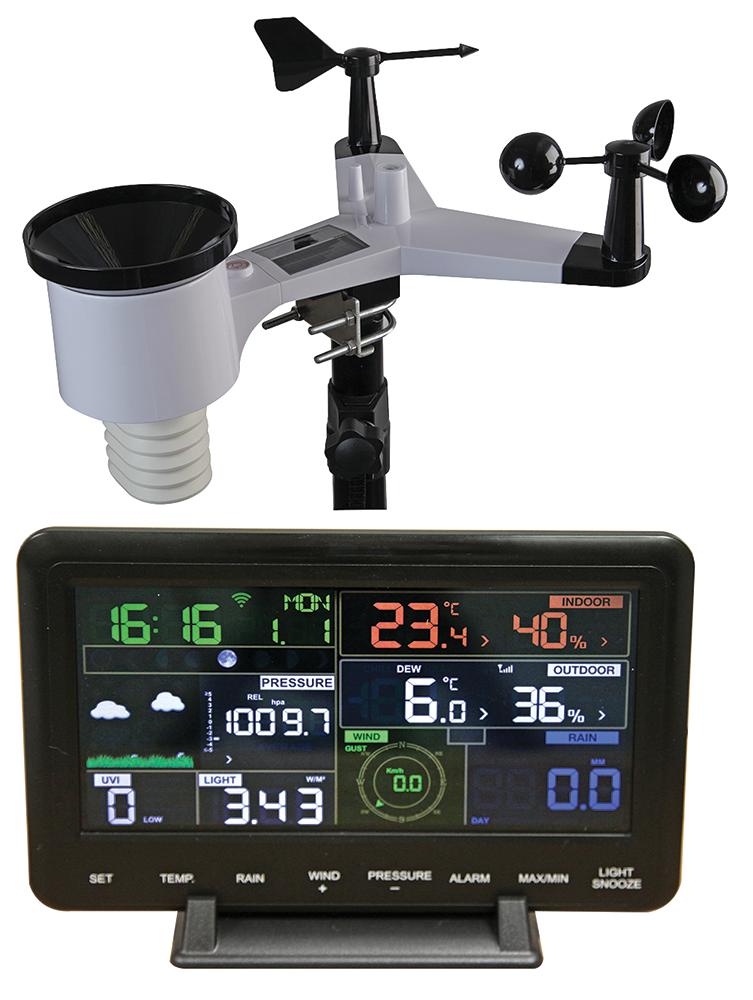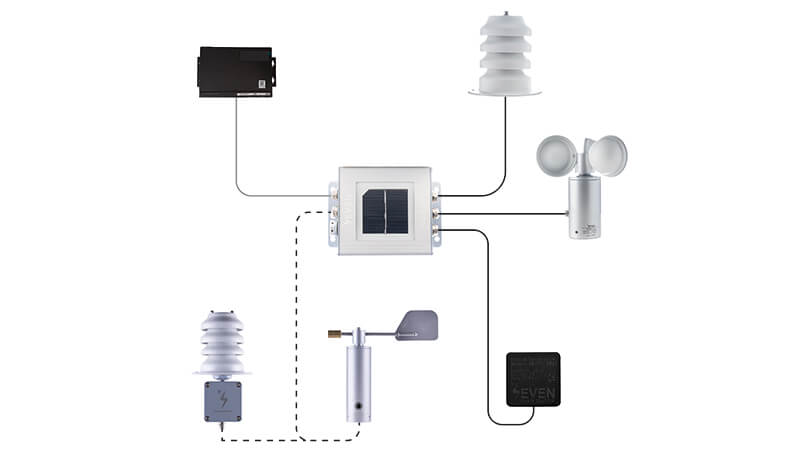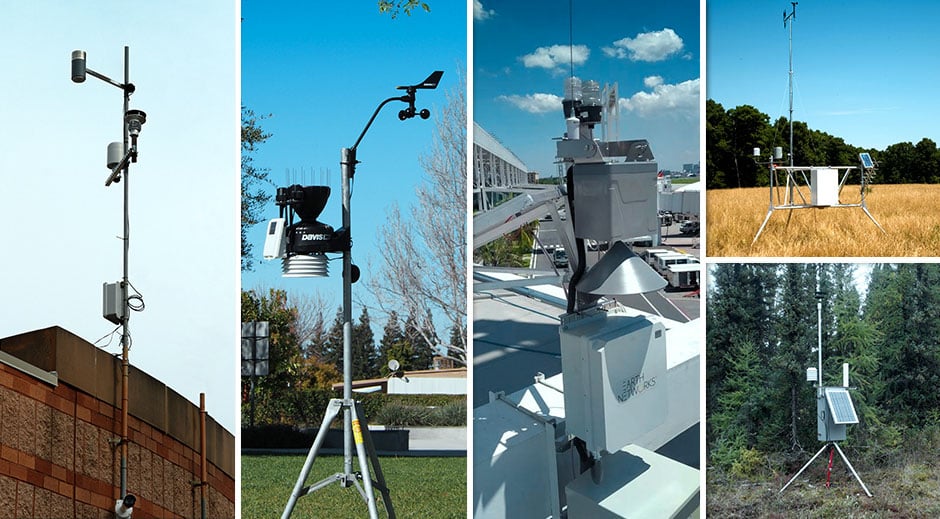Vital Tips for Establishing and Adjusting Your New Weather Stations
Vital Tips for Establishing and Adjusting Your New Weather Stations
Blog Article
Introducing the Significance of Utilizing an Expert Climate Station in Various Industries
In the world of different markets, the utilization of a professional climate station stands as a crucial component in functional frameworks. The significance of precise weather condition information extends beyond plain meteorological attraction; it stands for a cornerstone for notified decision-making procedures. The ramifications of employing a specialist weather condition station go beyond the surface level of data collection. By delving right into its complex effect on safety and security methods, operational efficiency, source management, and industry-specific surveillance practices, a deeper understanding arises of the crucial role such innovation plays in shaping the landscape of diverse fields (Weather Stations).
Enhancing Decision-Making With Accurate Information
Enhancing decision-making in markets is significantly promoted by the utilization of precise information gotten from expert weather condition stations. Reliable climate details is critical for different industries, including agriculture, power, transportation, and building and construction. By including data from expert weather condition stations right into their decision-making processes, industries can make educated options that favorably influence their operations.

Improving Safety Actions and Precautions

Furthermore, specialist weather condition stations give in-depth insights right into different meteorological criteria like temperature, moisture, wind speed, and rainfall levels. This details is vital for executing customized precaution based on details climate conditions. Comprehending wind patterns can aid in securing loosened objects or scaffolding to stop accidents during solid gusts. Similarly, checking temperature variations is essential for carrying out warmth tension avoidance actions in high-temperature environments. In general, integrating data from professional climate terminals empowers markets to focus on safety and security and preemptively address weather-related risks, protecting both workers and possessions.
Boosting Operational Performance and Performance
To optimize functional procedures and make the most of output degrees in commercial settings, a strategic utilization of data-driven understandings and structured workflows is critical. Professional climate terminals play a vital role in enhancing functional effectiveness and productivity throughout different industries. By providing real-time and exact weather condition data, these terminals enable organizations to make educated choices that can positively influence their operations.
One considerable method weather terminals add to boosting functional performance is by assisting in resource administration. With accurate weather prediction, sectors can much better allocate sources such as workforce, products, and equipment. Recognizing in advance about an upcoming storm can aid businesses adjust their routines, making sure the safety and security of workers and avoiding pricey delays.
In addition, specialist weather terminals help optimize power use. By keeping track of weather like temperature, wind rate, and sunlight levels, sectors can adjust their energy intake patterns appropriately. This not only results in cost savings yet also reduces the environmental impact of excessive energy use. On the whole, incorporating an expert weather condition station into commercial procedures can cause smoother workflows, boosted efficiency, and ultimately, enhanced productivity.
Optimizing Source Monitoring and Preparation


By properly keeping track of weather problems such as temperature level, moisture, wind rate, and precipitation degrees, these weather terminals make it possible for markets to make educated choices pertaining to source allocation and preparation. In construction, monitoring weather condition problems can assist in organizing outside tasks successfully, lessening delays due to negative weather. Generally, the accurate information given by specialist weather terminals encourages industries to improve their resource administration methods, boost operational effectiveness, and ultimately improve their bottom line.
Making Certain Industry-Specific Climate Tracking
Various sectors have special weather level of sensitivities that can dramatically impact their operations. Construction business require real-time weather updates to schedule outside tasks have a peek here efficiently and make certain employee safety and security.
Sellers track weather trends to adjust supply levels based Homepage on expected need adjustments driven by climate problems. By spending in professional weather terminals developed for industry-specific demands, organizations can stay in advance of weather condition obstacles and make educated decisions to safeguard their procedures.
Conclusion
In conclusion, the usage of an expert weather station in various industries is essential for improving decision-making, boosting precaution, increasing operational effectiveness, maximizing resource administration, and guaranteeing industry-specific weather monitoring. By utilizing accurate and trusted information supplied by a specialist weather terminal, industries can make enlightened decisions, alleviate threats, and maximize performance. It is necessary for companies to spend in expert weather condition stations to stay in advance of the curve and maintain an one-upmanship in today's quickly transforming environment.
By using a specialist weather station, industries can boost their ability to monitor climate conditions properly, allowing for positive safety procedures. By precisely keeping an eye on weather problems such as temperature, humidity, wind speed, and rainfall degrees, these climate terminals enable markets to make informed decisions relating to resource allocation and preparation - Weather Stations. In building and construction, keeping an eye on weather condition conditions can help in organizing exterior tasks successfully, reducing delays due to negative weather. By spending in professional weather condition stations created for industry-specific demands, organizations go now can stay in advance of weather obstacles and make notified choices to protect their procedures
In final thought, the use of a specialist weather terminal in numerous markets is crucial for improving decision-making, boosting safety actions, increasing functional efficiency, enhancing source monitoring, and guaranteeing industry-specific climate monitoring.
Report this page